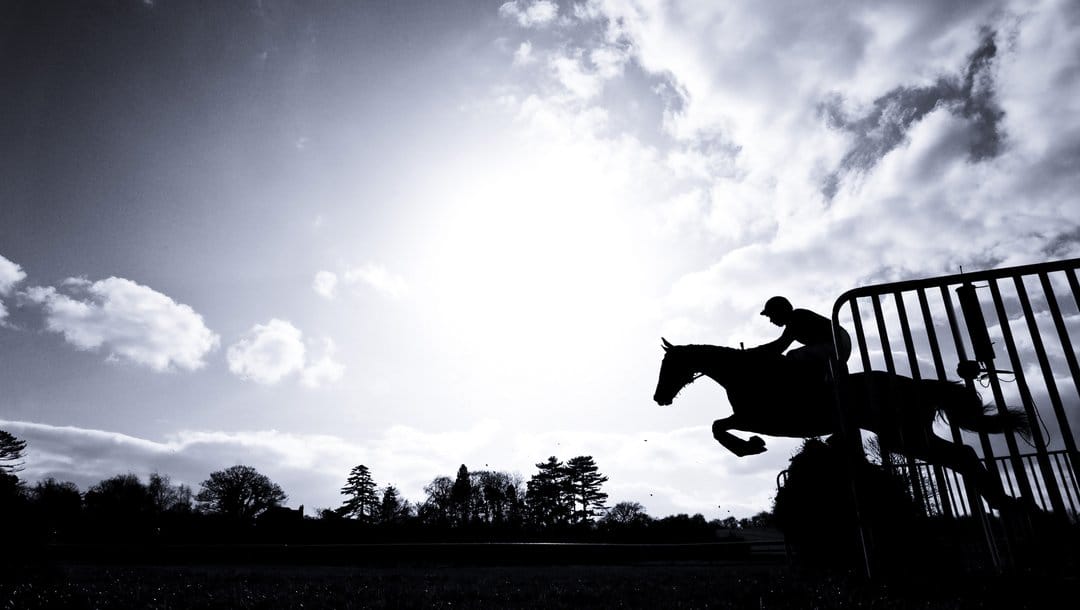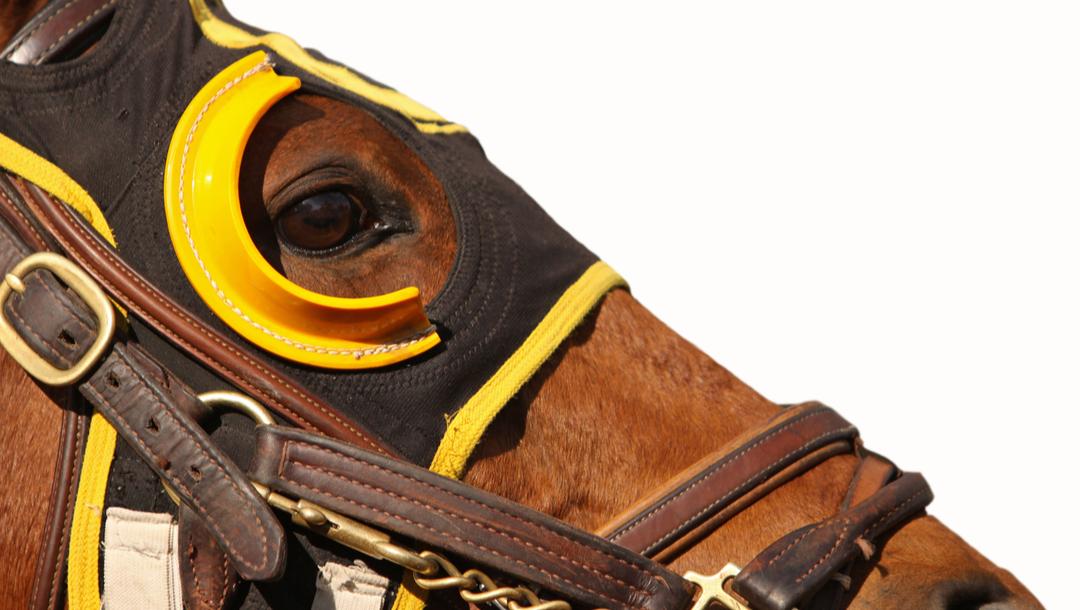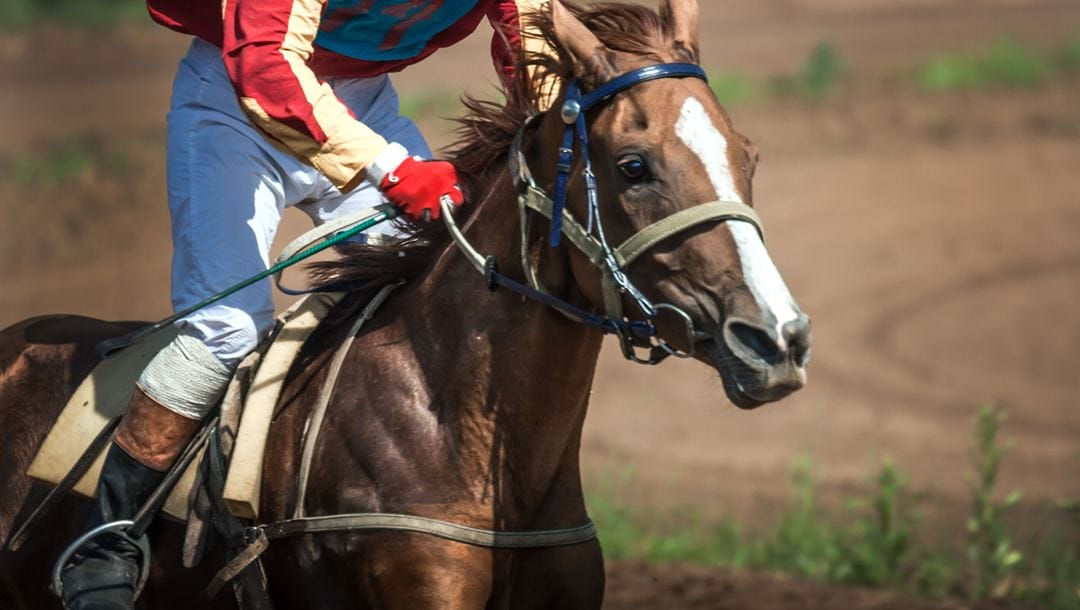It’s not called the sport of kings for nothing. Some of the world’s most expensive purebred horses have taken part in horse racing tournaments, not only on the US horse racing circuit, but globally.
If you’re a gambling fan, odds are you know how to bet on horse racing, and by now, you’re familiar with the sound of hooves thundering on turf. While little can beat the rush of standing at the edge of the track, there’s equal excitement to be had in online horse racing. Combining the thrill of the race with ease of accessibility, race lovers have seen it growing in popularity on many online sports betting platforms.
Types of horse racing
Over the centuries, several types of horse racing have evolved, each with its own set of rules and followings. These include:
- Flat racing: In these races, horses – most commonly Thoroughbreds – race from one point to another at a gallop.
- Steeplechasing (or jump racing): Here, horses will compete around a track over various jump obstacles, including ditches, rails, and brush fences.
- Harness racing: These are races in which horses, commonly Standardbreds, will trot at speed around a track while drawing a lightweight carriage, where the jockey sits, known as a sulky.
- Saddle trotting: Less common in the US, these races are ridden at the trot from one point to another around a track.
- Endurance racing: Covering distances as far as 250 miles, endurance races are run by Arabian horses, known for their strength and endurance.
Although there are many variations, it’s likely you’ve followed the flat races that dominate the industry. In America, The Jockey Club manages the American Stud Book for Thoroughbred horse breeding. Not to be confused with the term “purebred,” Thoroughbreds are a specific breed with centuries of selected bloodlines chosen for speed and athleticism.
US horse racing is overseen by various bodies, with different regulations applied in different states. For instance, the New York Racing Association (NYRA) operates the three largest Thoroughbred horse racing tracks in New York where NYRA bets are placed.
Record figures

It’s no secret that horse racing is an expensive sport. Equine competitors are treated like royalty and good breeding horses are just as valuable as active racers. So just how much is a good horse worth, and would your budget stretch to purchase one? Take a look at five of the top-priced horses that have changed hands and decide for yourself.
5. Seattle Dancer – $13.1
Sold as a yearling in 1985, Seattle Dancer is an example of how buyers invest in a horse’s potential. At just a year old, the colt was still a year away from his racing debut. At $13.1 million, he was the most expensive yearling ever sold at auction. After a fairly brief racing career with two respectable wins, he went on to become a successful stud stallion.
4. The Green Monkey – $16 million
Although at $16 million, The Green Monkey rates as one of the priciest horses ever sold, he never achieved greatness. Aside from not winning any of the three races he ran before retiring to stud, his progeny never made any significant achievements either.
3. Shareef Dancer – $40 million
Boasting an impressive $40 million dollar price tag, Shareef Dancer was purchased in 1983 as a stallion prospect and went on to sire several top horses. While his own racing career was modest, he shows how bloodlines are often the measure of a horse’s market value.
2. So You Think – $51.5 million
So You Think is a great example of a horse who boasts both talent and breeding. This five-times Group 1 race winner had two of Australia’s biggest racing titles to his name, as well as winning the Prince of Wales Stakes at Royal Ascot. After retiring to stud, he earned a reputation as one of the sport’s most successful sires and his progeny regularly earn top prices on auction.
1. Fusaichi Pegasus – $70 million
Soaring into the top slot in the price ranks has got to be Fusaichi Pegasus. Sold in 2000 for a staggering $70 million, this Thoroughbred won the Kentucky Derby in 2000, earned $2 million, and sired over 75 stakes winners worldwide. Most impressively, the colt was initially purchased for a paltry $4 million, which represents a fairly hefty ROI.
Why are the prices so high?

So why would anyone pay so much for a horse who may never win? The answer to this question is complex, based on bloodlines, conformation (how a horse is built), and potential performance.
In most instances, the breeding prospects are what matter. Fusaichi Pegasus, for example, initially commanded a stud fee of $150,000. Although this figure has dropped, essentially every time Fusaichi Pegasus “gets lucky,” his owners get even luckier.
However, that fee is chump change compared with the rumored $663,000 fee asked for legendary Irish stallion Galileo. By calculating the number of times Galileo would be booked for a roll in the hay, his value to his owners is around $199 million.
Generally, a horse that has dominated the track and has stellar breeding will draw the most interest. Here, we often see the fillies getting their time to shine. Although mares only produce one foal a year, compared to the unlimited number of offspring a stallion can sire, many good mares have retired from racing and moved on to successful breeding careers.
In 2017, the champion sprinter Marsha was sold for $7.5 million in 2017, making her the most expensive racehorse sold in Europe. It might be said that her 2020 foal by racing royalty Galileo, represents the very pinnacle of racing bloodlines.
Bet on online horse racing with Borgata
Of course, you could get lucky too, without the hassle of owning a horse or playing equine match-maker. Simply register at BetMGM for a range of online sports betting options, including online horse racing and numerous other exciting sports, from football and MMA to golf and darts. There’s also a variety of casino table games and arcade-style games to try out!


